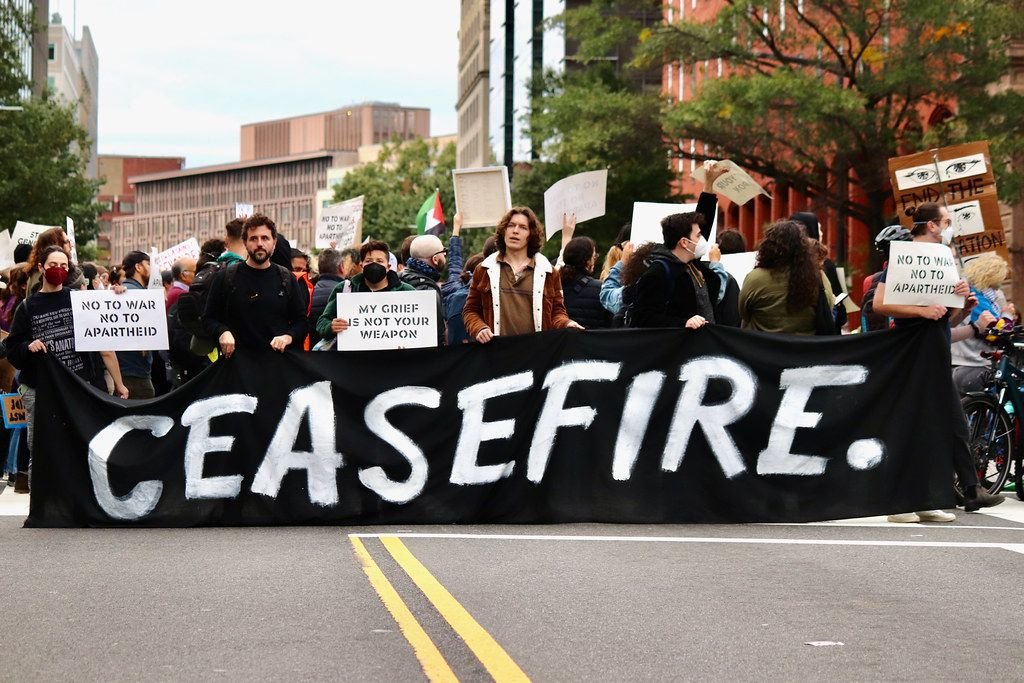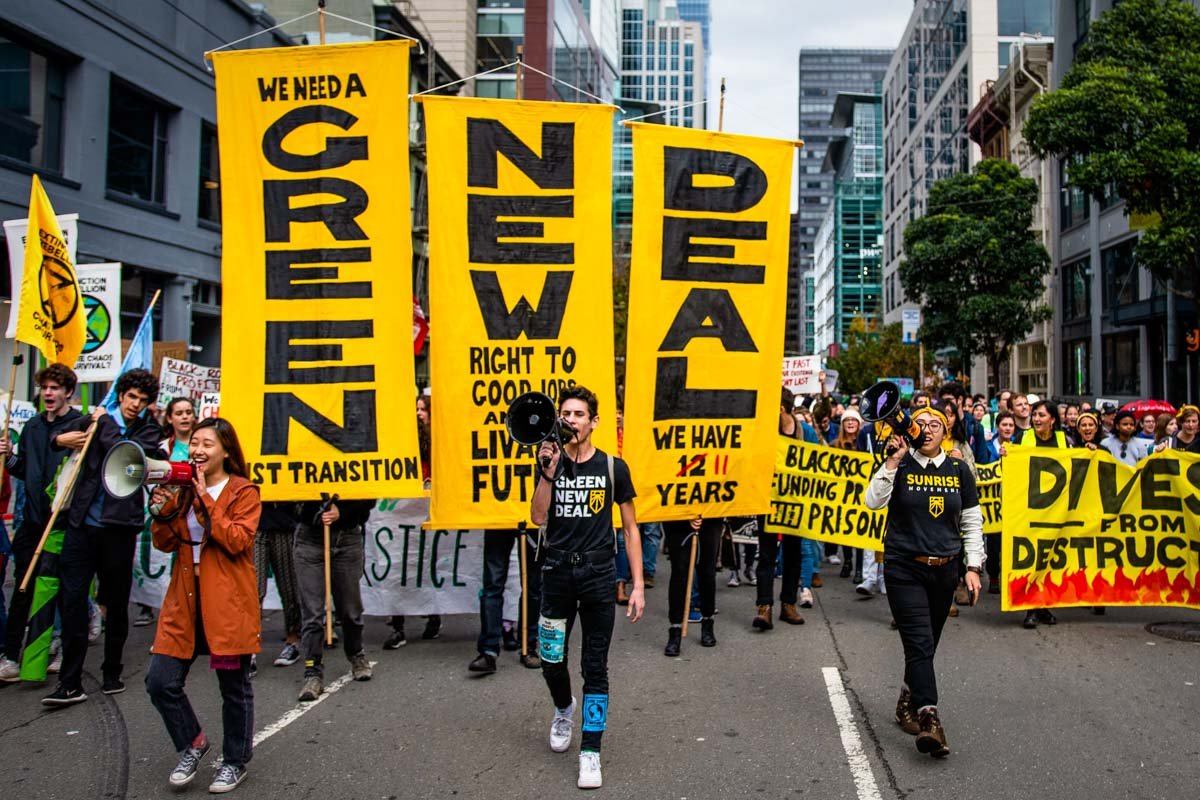75th Annual National Book Awards Ceremony
National Book Foundation
Streamed live 8 hours ago
Tune in live to the 75th National Book Awards Ceremony on November 20, 2024 at 8:00pm EST. Hosted by Kate McKinnon, and featuring musical guest Jon Batiste. Join us for the announcement of the 2024 Winners of the National Book Award for Young People’s Literature, Translated Literature, Poetry, Nonfiction, and Fiction, and the presentation of the Foundation’s two lifetime achievement awards, to W. Paul Coates and Barbara Kingsolver.
To learn more about the 2024 National Book Award Finalists, and support our year-round work: https://www.nationalbook.org/awards2024/


PHOTO: Percival Everett photographed in South Pasadena, California, in March 2022. Photograph: Dan Tuffs/The Observer
All,
FINALLY one of the greatest writers in American history receives the national/global recognition, appreciation and honor from the literary world and beyond that he so righteously deserves and has for over 40 years now. Since 'Suder' his debut novel in 1983 Percival Everett has written an astonishing 35 books of fiction, short stories, and poetry which have been widely acclaimed by critics and readers alike throughout not only the United States but the world. A prolific author, critic, and professor who has taught literature, critical and literary theory, and philosophy at the University of Southern California (USC) since 1998 and whose work has been translated in many languages worldwide Everett has not only fully earned his most recent honor but to myself and many others he is overdue to be a very serious candidate to win both the Pulitzer and the Nobel Prize in Literature as well. He's that good and I truly hope and suspect that he will also attain these world class literary honors in the very near future.
Kofi
https://www.nytimes.com/2024/11/20/books/booksupdate/national-book-award-2024.html
Percival Everett, Author of ‘James,’ Wins National Book Award for Fiction
Jason De León received the nonfiction award for “Soldiers and Kings: Survival and Hope in the World of Human Smuggling.
PHOTO: Percival Everett, awarded the prize for fiction, said seeing so many people gathered together to celebrate literature gave him a sense of optimism. Credit: Karsten Moran for The New York Times
November 20, 2024
New York Times
Percival Everett won the National Book Award for fiction on Wednesday for his novel “James,” a propulsive and slyly funny retelling of Mark Twain’s “Adventures of Huckleberry Finn” from the perspective of Huck’s companion, an enslaved man named James.
In accepting the award, Everett said that seeing people coming together to celebrate books gave him a sense of optimism during what was, for him, a challenging moment.
“Two weeks ago, I was feeling pretty low, and to tell you the truth, I still feel pretty low,” he said, in an oblique reference to the results of the presidential election. “As I look out at this, so much excitement about books, I have to say, I do feel some hope.”
Published this spring, “James” drew rapturous reviews from critics. “It is a tangled and subversive homage, a labor of rough love,” Dwight Garner wrote in The New York Times, calling the novel a masterpiece that deserves to be read alongside the book that inspired it.
This year’s award ceremony, which drew 800 guests to a black-tie dinner at Cipriani Wall Street, marked the 75th National Book Awards.
The event kicked off with a piano riff on Beethoven’s Fifth symphony by Jon Batiste, the Grammy Award and Academy Award-winning singer, songwriter and composer.
He was followed by Kate McKinnon, a comedian and actress who hosted the event and joked about her lack of literary credentials in the opening remarks. After describing the power of books to illuminate, provoke and inspire change, she confessed that the line was written by ChatGPT. “Is that bad?” she asked.
PHOTO: Kate McKinnon joked about her lack of credentials to M.C. the literary award. Credit: Karsten Moran for The New York Times
Even with McKinnon’s jokes and frequent whoops of delight, the mood often turned somber, as writers spoke about the role of literature in challenging times, with ongoing wars, political division, racial inequality and growing book removals around the country.
“Hard times are coming,” said Ruth Dickey, executive director of the National Book Foundation, quoting a speech given by Ursula K. Le Guin at the National Book Awards in 2014, as she described the threat of rising censorship and book bans.
The award for nonfiction was given to the anthropologist Jason De León for “Soldiers and Kings: Survival and Hope in the World of Human Smuggling,” an immersive account of the nearly seven years he spent embedded with human smugglers on the U.S.-Mexico border. The book depicts traffickers as both victims and perpetrators of violence, often suffering from the same poverty as migrants.
In accepting the award, which he dedicated to “everyone on the migrant trail,” De León denounced the incoming Trump administration’s proposed crackdown on immigration and other policies. “I will not accept the dystopian American future,” he said.
PHOTO: Jason De León, who won the nonfiction award, spoke out against the immigration policies espoused by the upcoming Trump administration. Credit: Karsten Moran for The New York Times
The National Book Award, established in 1950, is one of the most prestigious literary prizes in the United States. Past winners include William Faulkner, Flannery O’Connor, Ralph Ellison, Louise Erdrich, Colson Whitehead and Jesmyn Ward.
The prize, which is given in five categories — fiction, nonfiction, poetry, translated literature and young people’s literature — is open to books released by U.S. publishers in the United States between Dec. 1, 2023 and Nov. 30, 2024. Earlier this year, the National Book Foundation announced that it was dropping the citizenship requirement, opening up the prize to immigrants and others who have made their home in the United States.
The National Book Foundation also recognized Barbara Kingsolver, the author of nine novels, including “The Poisonwood Bible” and “Demon Copperhead,” which won the 2023 Pulitzer Prize, with a lifetime achievement award.
In accepting the prize, Kingsolver made a case for morally engaged literature that raises uncomfortable questions about social inequality and injustice. “I think we’re at our best when we’re disruptors, when we rattle self absorption,” she said. “We get to crack people open.”
PHOTO: Barbara Kingsolver, honored for her lifetime accomplishments, made an argument for literature that “rattles self absorption.”Credit: Karsten Moran for The New York Times
The foundation also honored W. Paul Coates, publisher and founder of Black Classic Press and BCP Digital Printing, with the Literarian Award, which recognizes service to the literary community.
Coates’s award provoked controversy after an article in Jewish Insider questioned the foundation’s decision, noting that Black Classic Press had republished the late Tony Martin’s 1993 book “The Jewish Onslaught,” which was criticized as antisemitic at the time of its publication for Martin’s claims that Jewish people were opposed to Black progress.
The foundation defended its choice in a statement to Jewish Insider, noting that they awarded the prize to Coates for his work “to ensure that Black voices and stories, that might otherwise have been lost, are instead preserved as an irreplaceable part of American literary history.” On Wednesday night, Coates received the award to warm applause and without incident, and spoke about the purpose of his press.
“My mission is recovery, and making Black self-narrating voices known to the world,” he said.
The award for translated literature, which was added in 2018, went to Yáng Shuāng-zǐ’s “Taiwan Travelogue.” The novel, about a Japanese novelist who travels to Taiwan in 1938 and forms a relationship with her young female interpreter, was translated from Mandarin by Lin King.
The award for young people’s literature was given to Shifa Saltagi Safadi for “Kareem Between,” a coming-of-age novel that centers on a Syrian American boy struggling to fit in. In her acceptance speech, Safadi thanked Allah and the Muslim writers who had come before her, and denounced the “dehumanization of Arabs and Islamophobia,” as well as the war in Gaza.
The poetry prize was awarded to Lena Khalaf Tuffaha for “Something About Living,” a collection that explores the erasure of Palestinian history. Tuffaha, who decried the ongoing violence in Gaza, said that she was honored to accept the award as a Palestinian American on “behalf of all the deeply beautiful Palestinians that this world has lost, and in honor of all the miraculous ones who endure.”
Alexandra Alter writes about books, publishing and the literary world for The Times. More about Alexandra Alter
See more on: National Book Foundation, Barbara Kingsolver, Percival Everett
The author of James, shortlisted for the Booker Prize 2024, on how he sees himself as being in conversation with the creator of Huckleberry Finn, and the skills he learnt from reading Tristram Shandy
Read interviews with all of the longlisted authors here.
The inspirations behind my Booker-shortlisted book
Mark Twain’s Adventures of Huckleberry Finn is the source of my novel. I hope that I have written the novel that Twain did not and also could not have written. I do not view the work as a corrective, but rather I see myself in conversation with Twain.
The book that made me fall in love with reading
Kurt Vonnegut’s Slaughterhouse-Five.
The book I return to time and time again
Samuel Butler’s The Way of All Flesh. I love the way Butler creates the history of the family seemingly without effort and I love the humour.
The book I can’t get out of my head
There are too many to single out just one.
The book that changed the way I think about the world
Chester Himes’s novel Third Generation made me consider the politics of skin colour. I could see my own mother in the mother of the character and so formed a better understanding of people in general.
Chester Himes’s novel Third Generation made me consider the politics of skin colour
The book that changed the way I think about the novel
Sterne’s Tristram Shandy taught me the importance of play as an avenue to meaning. Also, I learned that important truths don’t need and often don’t come italicised or with brassy accompaniment.
The book that impressed me the most
Again, Tristram Shandy, for its intelligence and play. It challenges how a work of fiction is supposed to mean and make meaning. An 18th-century novel that could pass for post-modern (if there were such a thing).
The book I’m reading at the moment
Joseph Horowitz’s Dvořák’s Prophecy. This is a wonderful book about the construction of so-called high and low culture in turn-of-the-20th-century United States.
The Booker-nominated book everyone should read
Nonso Anozie reads from ‘James’ | The Booker Prize
Discover the book: https://thebookerprizes.com/the-booke...













